|
My father Roy David Rocklin died on March 19th, 2023. He was 69. Over his life he was a research scientist, a teacher, and a politician as well as a father, grandfather, brother, husband, and dear family member to our entire extended family. I wanted to write a few things about him. Dad was born August 3rd 1953 in San Francisco. This is recorded in the massive family tree that he constructed and took great pride in. On Dad's mother's side, the family tree spans at least eight generations: from Icek and Liba Furcajgier (born in 1787 and 1799 in Opatow, Poland) to my daughters born in 2017 and 2019. Dad located a copy of Icek's death certificate (d. 1855 in Opatow) along with scores of other birth, death, and marriage certificates. Thanks to Dad's records, I learned that my great-grandfather Harry (great-grandson of Icek and Liba) married my great-grandmother in Chicago in 1908, during a stay away from their home in Toronto. Harry (born 1886 in Opatow) and several of his siblings were the first generation to come to North America. My family saw Fiddler on the Roof many times when we were children. At the end, the Jewish villagers are evicted from their village (the only home they've known) by the Tsar. It's a sad moment. I remember Dad telling me that (in retrospect) this was actually a happy ending; leaving their village for America was the best thing that ever happened to those people and their descendants (us). Dad was a scientist. He earned his Ph.D. in 1980 at UNC Chapel Hill with Royce Murray, with a thesis titled "The electrochemistry of porphyrins covalently bonded to carbon and platinum electrodes". He told me he went into electrochemistry because he always loved electronics. He tried to get me interested in electronics, but it never caught. He was a hardware guy and (thanks to him) I became a software guy. In 1994 he bought me my first programming book: the baseball-themed "QBASIC for Rookies". He said he chose it because he didn't think I was a Dummy. Dad's Ph.D. work led directly to a job in Sunnyvale designing analytical instruments for Dionex. He worked at Dionex from 1980 until 1998 across numerous roles: R&D, engineering, marketing and sales. He told me he decided to leave Dionex because he "ran out of ideas." On the Saturday after he quit Dionex in 1998, the company paid him as a contractor to drive to Berkeley and troubleshoot an instrument in Carolyn Bertozzi's lab. They told him she was a very important professor. The visit stuck in his brain; he remembered her when I mentioned seeing her speak in 2006. I remember him teaching me bits and pieces about his work when he would take me to Dionex on the occasional weekend. I saw the lab full of all kinds of instruments, although the most exciting thing was the huge Magic Eye poster on the wall. He would talk about the importance of good baselines for measuring peak intensities in chromatograms, and how their software often screwed up the baselines. He was a great dad. Several memories stand out as inspirational. When Dad was a teenager, he loved playing the board game Diplomacy. When I was 14 he bought the game and told me he had been waiting my whole life until I was old enough to play. So we recruited five of my friends and played a full seven-player Diplomacy game with six 14-year-old boys and one 45-year-old dad. Dad played Italy. We loved it. Each game would be six or more hours, with Dad negotiating fragile alliances with one or another of my friends: "could you let me have Trieste if you get Vienna and Budapest? And we'll deal with Turkey next?". And then stabbing some of those friends in the back as well, to their dismay. We played many more times. In the summer of 2001 my school Wind Ensemble took a two-week European tour, performing in Germany, Austria, Switzerland, and Luxembourg. Dad volunteered to chaperone the trip and I was happy to have him along. For over a year beforehand, Dad studied, took classes, and read to re-learn the German he had last studied decades earlier. He was ecstatic to speak German in central Europe. He also videotaped the entire trip. He took hours of footage, then spent a solid month editing it down to a near-professional two-hour movie (excerpt). He wasn't always a perfectionist, but he usually was. Watching the video now brings back incredible nostalgia: he captured the performances and also a broad group of high school friends finding ways to have fun. He found unique angles for filming. He filmed passers-by listening to rehearsal music coming from open windows. He used our creepier performance piece as background music for scenes of our tour busses making a harrowing drive up a windy mountain road. Each directorial choice was clearly intentional. He poured his energy into the video to meet his own standard of quality and to produce lasting memories for all the band members and families, including me. Dad was very dedicated to preserving memories like this. In the last decade of his life he digitized thousands of prints and slides, often annotating them. He also digitized (from magnetic tape) all of my mom's piano recitals from when she was a student, before they'd met. He insisted that my mom's 1975 performance of Bach's D major Toccata (during her Master's studies) was the greatest version of the work he'd ever heard. He frequently harangued me to listen to that recording, right up to his last week. I think the last thing he said to me in person was the evening of February 25. He was listening to me practice Beethoven Op. 126 No. 5 (after a 20-year hiatus from the piano) and told me I should record it. Toward the end of high school I spent more and more time at debate tournaments. Each March 2001-2003, it was practically every weekend: Thursday afternoon, Friday afternoon, all day Saturday. And all day the next Saturday. Dad was there as a volunteer judge for all of those tournaments. "Volunteer", but necessary so that I could compete. Everyone knew him: my teammates, the other coaches and other judges, and our competitor teams who debated in front of him again and again. He was dedicated, he was encouraging, he was proud, and he enjoyed it. I was happy to be farther away from my parents for college. However, when I was choosing graduate schools, it happened that the best school for me was in San Francisco, just up the peninsula from my parents. In hindsight, this was extremely lucky. Many of my best memories with my dad come from these days. Soon after I moved to SF we saw Brahms's Symphony 2 at the SF Symphony. We saw the Borodin Quartet perform Shostakovich Quartets 7 and 8 and Beethoven Op. 59 No. 2 all in one concert. We saw the Orion Quartet perform Beethoven Op. 131 (just the two of us in Palo Alto for Dad's birthday). We saw the St. Lawrence Quartet perform Beethoven Op. 18 No. 4, Op. 127, and Op. 59 No. 1, Dad's favorite quartet. We saw Sergey Khachatryan play Bach's d minor Partita and the Kreutzer sonata, another of Dad's favorites. We saw Brahms' German Requiem, yet another of Dad's favorites. We went out to eat. We celebrated birthdays, my mom's recitals, and other holidays. Music was incredibly important to my dad. His favorite symphony was Brahms's 4th, followed closely by Beethoven's Eroica. He met my mom through the Classical Music Lovers Exchange in 1982. Music finally became a way of bonding after I went to college. I'd send him a list of music in my collection and he'd encourage me to listen to something I was missing, like Prokofiev. In his last months I was encouraging him to listen to Sibelius symphonies during his dialysis sessions. He never took to Sibelius. In 2013, my dad, mom, and I were driving back to the Bay Area after an apartment-hunting trip to Seattle. We were talking about music, and Dad mentioned that his all-time favorite piece of music was Ravel's Le Tombeau de Couperin. I was stunned. Having talked with him about music for years and thinking I knew his personality, I thought his favorite overall work was something by Beethoven, like Op. 101. But no— he favored a more sensitive, longing, whimsical, and ambiguous 20th century work over his favorite Beethoven. I saw my dad differently ever since. A few months later at Dad's 60th birthday (soon after his first cancer episode), my mom performed several movements from Le Tombeau de Couperin for him and the guests. It was a surprise. It was one of the most romantic things I'd ever seen. After leaving Dionex in 1998, Dad worked at a series of companies before deciding he wanted to become a science teacher. He started teaching high school chemistry and physics in 2005, arriving at Lynbrook High School (a public school in San Jose) in 2006. His students called him Doc Rock and he loved to brag about his exceptional ones. Doc Rock traveled with many of them to the Science Bowl national championships in Washington, D.C.. He would also spend hours in the homework center each afternoon tutoring students who wanted extra help. He even got Dionex to donate an old HPLC/IC to Lynbrook so Doc Rock could teach an analytical chemistry lab. He had students create their own lemonade recipes and analyze the sugar and other ion concentrations. He had tremendous Lynbrook spirit and would dress as a Cat-ion for Halloween. Dad became a politician for many reasons, but one strong motivator was his idealism: his powerful belief in making decisions for the common good based on reason and evidence, not fear. In 2015 while Dad was still teaching, his school district was considering leasing space near his school's athletic fields for cell phone towers. This generated loud opposition from many parents concerned about the safety of cell phone radio waves. Later that year, Lynbrook parents sued the school district alleging (among other things) that the existing cell phone towers atop the school gym produced dangerous radiation. These episodes exasperated Dad. He read every study he could find on the topic. And then he went to the school board himself to make the case - not specifically the case for cell phone towers, but the case for basing decisions on evidence, facts, logic, and science. "The Verizon issue even brought out a Lynbrook High teacher to speak at the meeting. Roy Rocklin, a physics and science teacher argued that fear is not a good enough reason to deny the proposal. “I'm not a Verizon customer. I'm here to support the idea that decisions should be made based on evidence, facts, logic and science. Evidence does not support the conclusion that cell phone towers pose a threat,” he told the board and audience. “At Lynbrook High School, we are proud of our students' commitment to science. Making a decision based on fear is a violation of fundamental principals [sic] we teach at Lynbrook High School.” He also argued that other environmental factors are more harmful than waves coming from cell towers. “Sunlight is far more dangerous than radio waves,” he said. “The energy of sunlight is about 1 million times greater than that of cell phone and radio waves, and the power level of sunlight is about 10,000 times greater.” Rocklin's comments concluded with boos and jeers from many in the audience." (Santa Cruz Sentinel, May 6th 2015) (Beyond the merits of the issue, Dad had a special fondness for radio--amateur radio was a long-time hobby of his.) Dad decided to go beyond arguing before the school board - he decided to join it. After learning a board member was retiring in 2016, Dad sought - and won - the endorsements of all five board members for his own campaign. Dad campaigned on "supporting the education of all students, from the strongest students to those who need the most help." Along with his endorsements by the incumbents, he also touted the endorsement of my old band director John Burn - leader of our European tour fifteen years earlier. Dad earned 48,032 votes in 2016, the current all-time record for that office and substantially ahead of his challengers. He was reelected unopposed in 2020. I loved talking to Dad about his work on the school board: how he approached controversies over attendance boundaries, his efforts to pass a parcel tax for additional funding, how the district became enmeshed in local controversies over city growth and development, how they handled Covid policy, controversies over police in schools, expulsions, and assigned readings (many of which he read himself), and even the insidery details of whether the five-member school board could continue to be elected "at large" or would be sued into establishing local boundaries for each school board seat. He involved himself in all of it. He would always listen sympathetically to any constituent or parent with an opinion, but he always made up his own mind. Dad's final career in public service did have a precedent: as a graduate student, he had served as president of UNC's Graduate and Professional Student Federation. He waged a brutal campaign against UNC's (undergraduate-dominated) Campus Governing Council to regain control over student fees contributed by graduate and professional students. This ultimately led to a campus-wide referendum that ended in allegations of election fraud and a record 25 hours of testimony before the Student Supreme Court of the University of North Carolina. Dad won. One of the justices was UNC law student Roy Cooper, now Governor of North Carolina. If Dad ever remembered the name Roy Cooper and made this connection, he never told me. I was in a MUNI station late at night in 2011 when Dad called me to tell me he had been diagnosed with stage 1 follicular lymphoma, grade 1 or 2. He was 57 and tried to be reassuring on the phone. At one point I remember him saying his doctor told him he should expect to live 5 to 10 more years. The chemotherapy he received from 2011-2013 put his lymphoma fully into remission, although his 60th birthday in 2013 was still very emotional. Almost five years after his diagnosis, he was a 62-year-old cancer survivor launching his first run for public office. Dad's chemotherapy would eventually destroy his kidneys, and he began receiving dialysis three times per week in January 2022. This also coincided with a surprise heart surgery that kept him in the hospital for weeks. He would always call and report on his condition in the most matter-of-fact way - never scared exactly, but often touting the educational credentials of his doctors. After only a few months adapting to his new dialysis routine, Dad called on April 1st, 2022 with much scarier news: he had been diagnosed with Merkel cell carcinoma, a rare aggressive skin cancer with a very poor prognosis. He always delivered bad news himself over the phone. Dad had required treatment for skin cancer many times before, but this was different. He would live just under one more year. He was still serving on the school board up to the very end, joining meetings by zoom when he couldn't attend in person. Soon after Dad died, his school district asked my mom's permission to name Lynbrook's soon-to-open new science building after Dad. She and the rest of our family were tremendously honored. The Rocklin Science Center at Lynbrook High School was officially dedicated on October 27. It was a beautiful ceremony featuring Dad's past and present board colleagues, district and school officials, family and friends, and the Lynbrook Marching Viking Band. I wrote this to share some of the most memorable things about Dad, but so much is missing: how he loved becoming "Zaydie", how he would actually read the history books I'd recommend to him, how he'd always point out the planets in the night sky, how he arranged a year in advance to bring our whole family to the 2017 total solar eclipse in Salem Oregon (just like he had taken us to see the total eclipse in Hawaii in 1991), the creativity he put into designing the programs for my mom's students' recitals (including the famous "Butterfly Ballot" program of December 2000), the many conversations we had about national politics, his love of baseball, and so much more.
Roy Rocklin Obituary on Legacy.com Dad's reviews on RateMyTeachers.com, 2007-2013 Fremont Union High School District AVID Scholarship Program
2 Comments
On Aug 25 we celebrated our lab's first thesis defense! Congratulations Tae-Eun for a great talk and pathbreaking thesis that really helped establish key directions and philosophy for the lab.
The Rocklin Lab (www.rocklinlab.org) is seeking multiple postdoctoral fellows for experimental and computational projects. We are located in a brand new building on Northwestern’s medical campus in downtown Chicago, in a space dedicated to Northwestern’s Center for Synthetic Biology. Start dates are flexible.
About us Our group focuses on developing high-throughput technologies for protein biophysics and protein design. We recently developed a new approach to measure protein folding stability for almost a million small domains using cDNA display (Tsuboyama et al. 2023). We also developed a unique approach to measure conformational fluctuations for thousands of protein domains using hydrogen-deuterium exchange mass spectrometry (see poster). We use these datasets to investigate fundamental biophysical questions and to develop predictive models for protein design. We are very excited to expand these methods to increasingly complex proteins. By improving our technology to assay more complex proteins, we can create more powerful, broadly applicable predictive models. Improving our approaches will also enable us to probe the relationships between stability, conformational fluctuations, and function in natural and designed proteins. Position description We are seeking interested researchers from any scientific specialization, including biology, chemistry, physics, and computer science. Most researchers in our lab perform both experimental work and computational analysis, but some choose to specialize. We are interested in researchers seeking to develop new experimental technology, apply our technologies in new ways, and develop improved predictive models. We are especially interested in expertise in RNA biochemistry/mRNA display, proteomics, hydrogen exchange mass spectrometry, protein biophysics, and machine learning, but please apply if you are interested and bring a different specialization. Why join the Rocklin Lab? We are a multidisciplinary and collaborative group in a fantastic environment. Our researchers are integrated into several larger communities that expand their scientific reach, including Northwestern’s Center for Synthetic Biology, Northwestern’s proteomics community, and the international Rosetta Commons protein modeling and design community. We work to create an environment that prioritizes mentoring and collaboration and I am excited to talk about this with candidates. Please visit rocklinlab.org or email [email protected] to learn more. To apply, please email me your CV and a cover letter describing your interests. It has been a whirlwind in the Rocklin Lab since the last lab update! Here are some of the exciting developments. Four new lab members! Welcome to Andra and Mario, joining the lab from Northwestern's DGP program! This is the first year we have had two Ph.D. students join! 🏎️🏎️ Welcome to Vasili MD PhD, joining the lab from Northwestern's PSTP program! Vasili is the first PSTP fellow to join the lab and we are excited to have his mix of biophysical and medical background! Welcome to Carlos Merlos, joining the lab through the Rosetta Commons Postbac program! We are back to having a postdoc after a break in 2022-2023. Carlos joins us after previously doing great work with Kevin Drew at UIC! Four summer undergraduates! Every summer seems to overflow with new people but this is the largest of all! Welcome to Darcy Kim, joining through the Rosetta Commons REU program! Welcome to Vani Lorish, joining through Northwestern's Synthetic Biology REU! Welcome to Elle Jung and Pranav Doradla! Elle and Pranav are Northwestern undergraduates who obtained summer research funding to work with our lab. It is great to have you all with us! Two new fellowships! Huge congratulations to Cydney Martell for being awarded a PhRMA Predoctoral Fellowship!! This is the first outside fellowship to a student in the lab and really reflects a ton of hard work Cydney put into preparing her application! And another huge congratulations to Claire Phoumyvong for being awarded an NIH F31 Predoctoral Fellowship!! This is the first NIH fellowship to any lab member and also resulted from a ton of very hard work! One new Ph.D. Candidate! Congratulations to Tanu Priya for passing her qualifying exam! Tanu is creating an entire new area of the lab in enzyme design! Two summer internships! Yulia started a summer internship at AI Proteins as a Rosetta Commons REU student! Cydney started a summer internship at Microsoft Research! One mega-scale paper! Kotaro's paper Mega-scale experimental analysis of protein folding stability in biology and design was published in Nature! This paper was preprinted in December and got a hugely positive response. We also released all the data for this paper on Zenodo, and the dataset has already received >600 unique downloads. The dataset includes >775,000 high quality stability measurements! There was way more in this dataset than we could possibly have analyzed in one paper, so please explore it yourself and let us know what you find! We also have two bittersweet departures from the lab. After 3.5 years as the founder of the lab's HDX team and hard work in that area, Suggie accepted a position at the Discovery Partners Institute. We will miss you Suggie and congratulations on all you accomplished! After 3 years in the lab and one mega-scale paper, Kotaro accepted a PI position at the Institute for Industrial Science, University of Tokyo. I am very excited to see all the science from your lab! Good luck!
Congratulations to Tae-Eun and Kotaro for successfully publishing the Rocklin Lab's first paper!! Congrats as well to Cydney and Claire who played important supporting roles. We learned a lot between our initial submission and our revised version, including that some fraction of the designs are dimers and that our original NMR structure was actually a dimer! Thanks to Tae-Eun's persistence and the hard work of Scott Houliston, we actually solved a second NMR structure and collected a second set of HDX data for a monomeric protein. Check it out either at PNAS or see our revised manuscript on bioRxiv.
Dissecting the stability determinants of a challenging de novo protein fold using massively parallel design and experimentation Kim*, Tsuboyama* et al. PNAS 2022 bioRxiv Open Access Link It has been a busy summer! Here are some updates from the lab: In May the whole lab attended the Midwest Folding Conference in South Bend, IN. Gabe gave the closing talk! At the start of the summer we said goodbye to our Rosetta Commons postbac Andres Lira. Andres is off to graduate school in biophysics at the University of Wisconsin-Madison! DGP Ph.D. student Tanu Priya joined the lab in June to work on enzyme design! Welcome Tanu! DGP Ph.D. student (and lab founder) Claire Phoumyvong passed her qualifying exam! We hosted three summer undergraduates this summer: Rosetta intern Sarah Fahlberg, Northwestern Synthetic Biology REU student Cassie Chrisman, and Northwestern Summer Undergraduate Research Grant awardee Yulia Gutierrez! It was our pleasure having all of you here for the summer! Five lab members (Suggie, Jane, Állan, Claire, and Sarah) attended RosettaCon in Leavenworth, WA, the first in-person RosettaCon since before Covid! Jane was selected to give a talk on her high-throughput hydrogen-deuterium exchange work! Wow that was even busier than I remembered. Onward to fall!
Tae-Eun and Kotaro finished the lab's first preprint!! The title is "Dissecting the stability determinants of a challenging de novo protein fold using massively parallel design and experimentation."
Read it here: https://www.biorxiv.org/content/10.1101/2021.12.17.472837v1 And see Tweet threads from me and Kotaro! I really like this paper for a few reasons. First, Tae-Eun started this project during his very first week in the lab- the second week after I arrived at Northwestern. Then Kotaro made significant contributions while he was still in Japan before arriving in Chicago. The paper examines a puzzle from my previous work with protein design- why the alpha-beta-beta-alpha fold (or HEEH as we often call it) and such a lower success rate than the other designs in my 2017 paper. Tae-Eun and Kotaro examined this question in depth and designed thousands of new stable proteins. We also collected some cool hydrogen-deuterium exchange data on an HEEH designed protein. This paper also provides one of the first pieces of evidence that AlphaFold 2 is not a panacea for protein design - many of the unstable designs look just as good as the stable designs according to AlphaFold 2. Cydney and Claire also contributed to this paper, so that makes five Rocklin Lab authors! We are excited to see this published! At the end of June we said farewell to two long-time researchers in the Rocklin Lab. Radhika Dalal finished her time as a Rosetta Commons Post-baccalaureate Scholar and is now preparing to start her Ph.D. research at UCSF's Biophysics program! We are so excited for her! Unfortunately Radhika could only work remotely for her entire time with us, but we will miss her. Good luck at UCSF Radhika!!
Jonathan Chen also graduated from the lab after completing his Master of Science in Biotechnology degree. Congratulations Jonathan! Jonathan is moving on to a position at Kite Pharma and might be considering a Ph.D. in protein design in the future! Jonathan leaves behind tens of thousands of designed proteins that we have not yet experimentally tested, but we expect to have these results soon :). Jonathan will really be missed - in addition to being a great colleague he was also a mentor for many summer and rotation students in the lab. Along with sad goodbyes, we are also excited to welcome many new lab members! We are so thrilled that lab founder Claire Phoumyvong (Research Technician March 2019-Aug 2020) has decided to re-join the lab as a DGP Ph.D. student!! We are also excited to welcome two scholars supported by Rosetta Commons: Will Howe (Rosetta Commons Summer Intern) and Andres Lira (Rosetta Commons post-baccalaureate fellow). Matthew Jin has also joined the lab as a Northwestern Synthetic Biology Summer REU student! Finally, Kyrollos Shenouda joined the lab for his Northwestern Master of Science in Biotechnology research. Welcome Kyrollos! With so many new people we are all being kept busy, but it has certainly made the lab lively! Also: congratulations to Cydney Martell for passing her qualifying exam! Hi, I want to get in the habit of sharing lab news more, so let me do a big dump of lab news from the lab's second year. Certainly the past year was a painful year for the world and wreaked havoc on the lives of our lab members to varying degrees. But I think we can be proud of the ways we tried to stay connected over the past year and the progress people were able to make despite the pandemic. So, here's a summary of some of the big achievements of the lab's second year-
Lots of new people joined the lab! Cydney Martell joined the lab as our 2nd PhD student from the DGP program. Will Corcoran also joined the lab as a joint student with Josh Leonard's lab (Will was previously just advised by Josh). Jane Thibeault joined the lab as our third postdoctoral fellow, soon followed by Állan Ferrari who just started as our fourth fellow. Both Jane and Állan have backgrounds in proteomics and computation. Radhika Dalal joined the lab as a Rosetta Commons Postbaccalaureate Fellow! We won some awards! The lab was awarded our first external grant - a prestigious NIH New Innovator award. This award will support our work to develop a high-throughput hydrogen-deuterium exchange approach to study protein energy landscapes. Kotaro Tsuboyama started his fellowship as a Long-Term Fellow of the Human Frontiers Science Program! Állan Ferrari was awarded a BEPE Fellowship! Cydney Martell was awarded a competitive spot in Northwestern's Center for Life Processes Training Program! Will Corcoran was awarded a competitive spot in Northwestern's Biotechnology Training Program! We hosted summer students! Jordan Gewing-Mullins and Nahtalee Lomeli worked with us remotely over Summer 2020. Some of us moved on... Our first lab member Claire Phoumyvong moved on to join Northwestern's DGP Ph.D. program. She is now back rotating in our lab though :) One of my goals this year is to update the website more frequently, so hopefully there will be more news soon! |
Gabriel RocklinAssistant Professor Archives
November 2023
Categories |
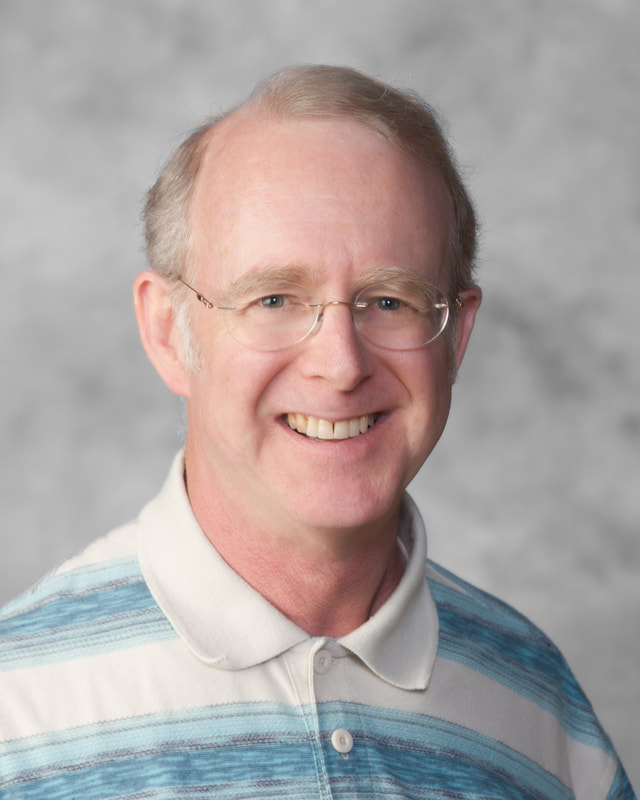
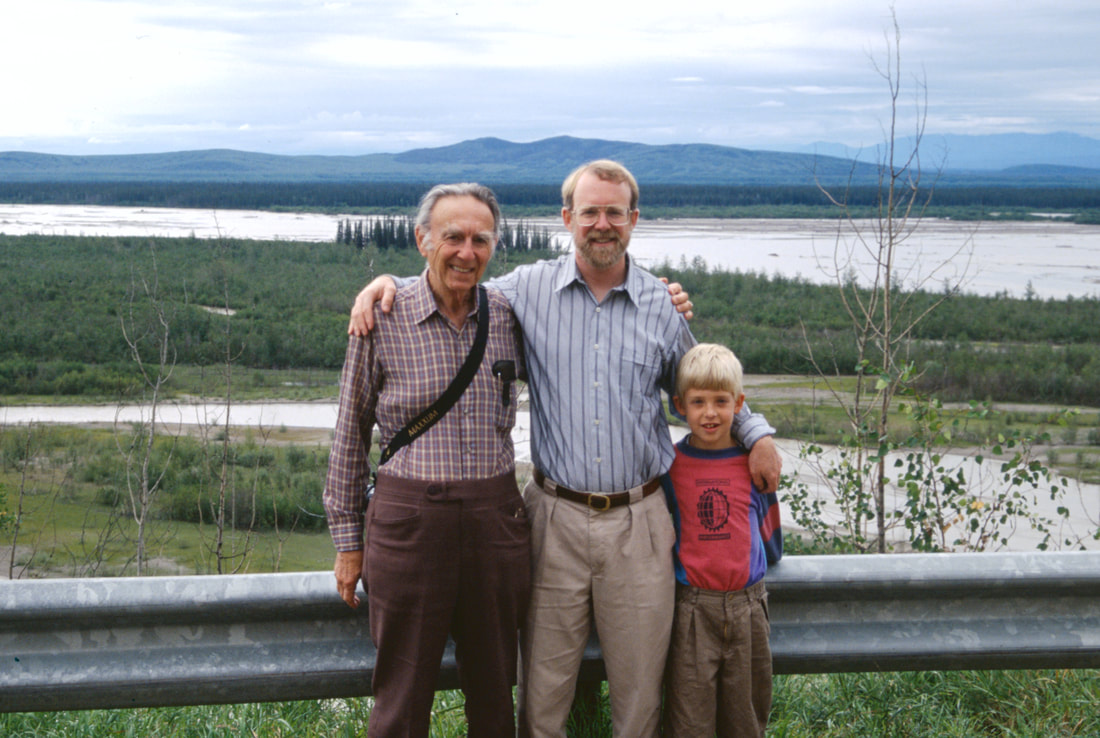
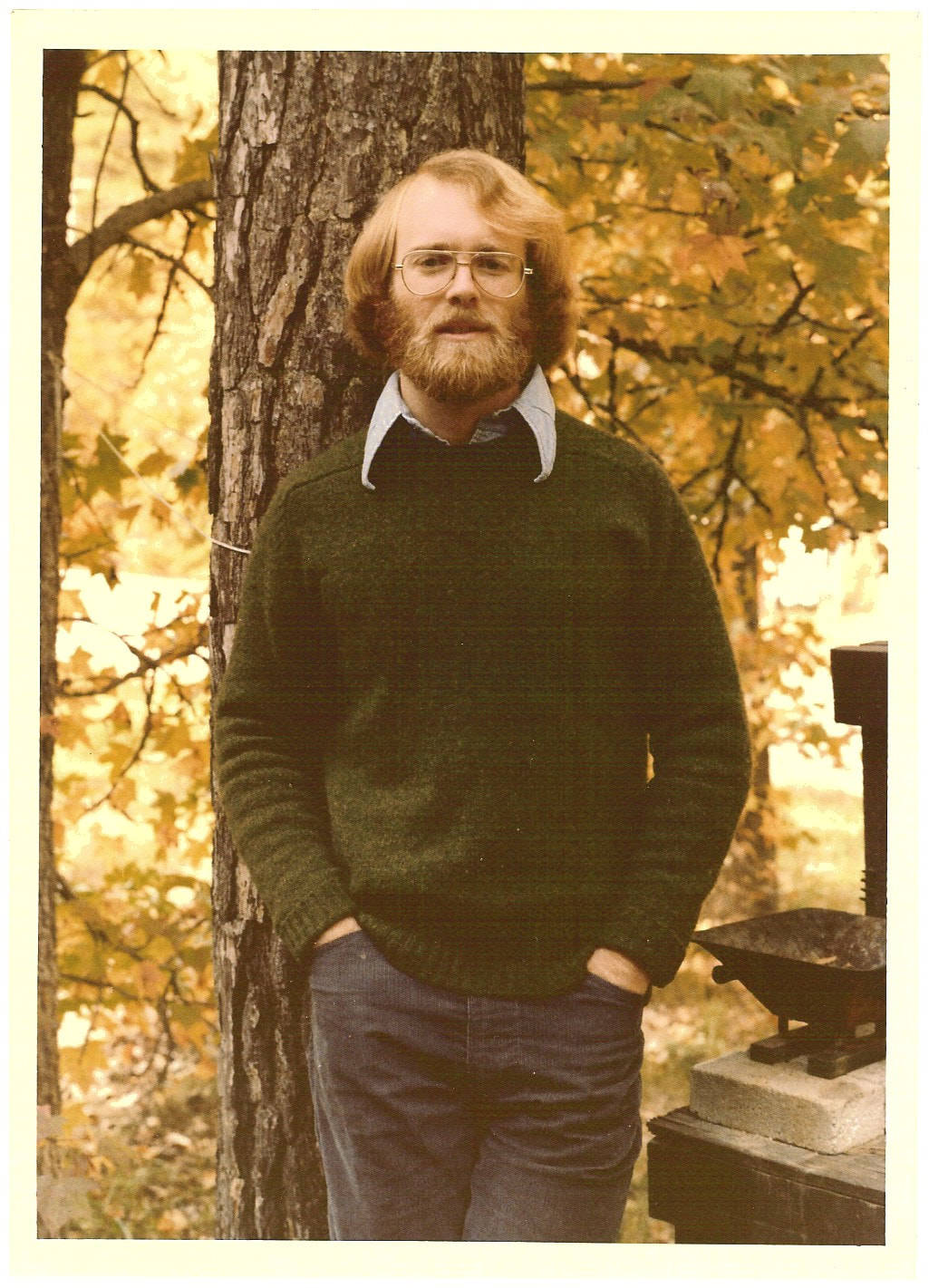
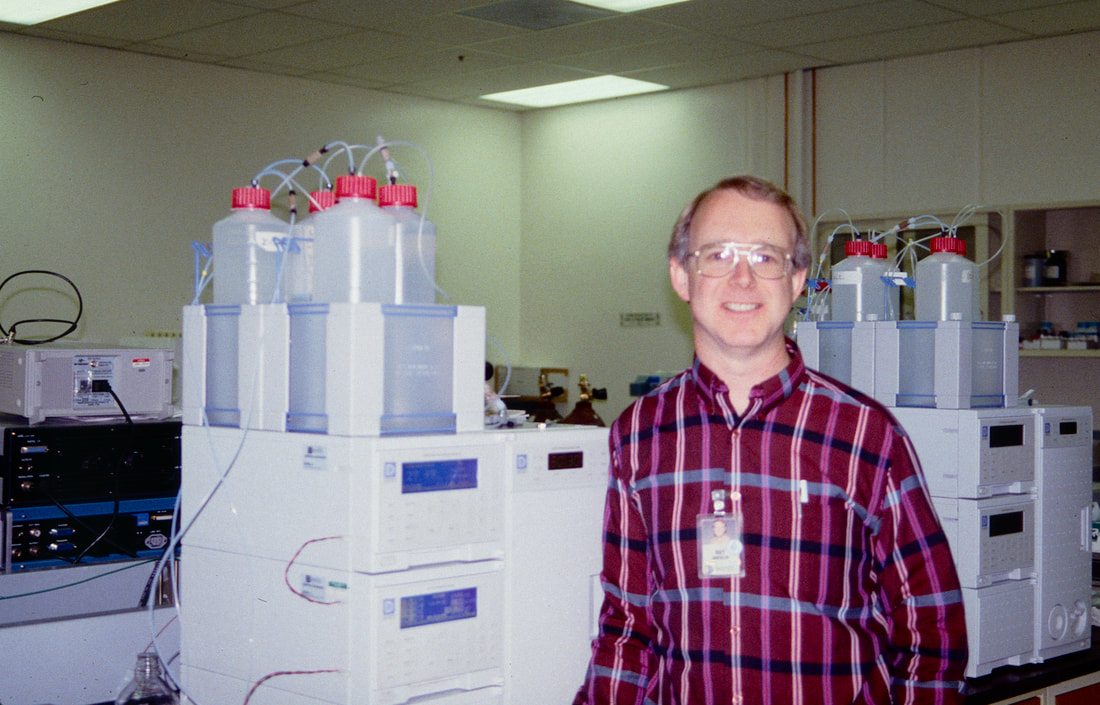
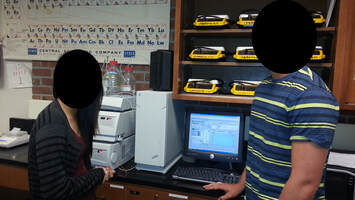
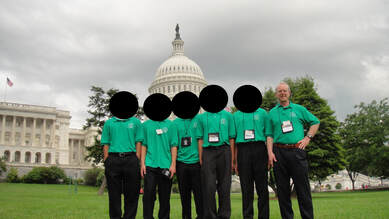
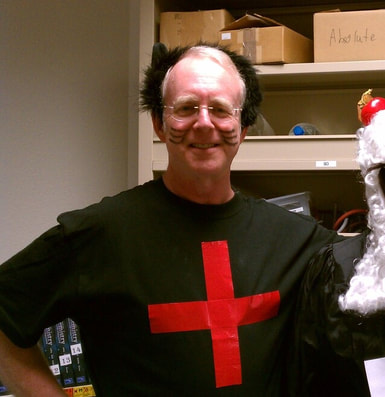
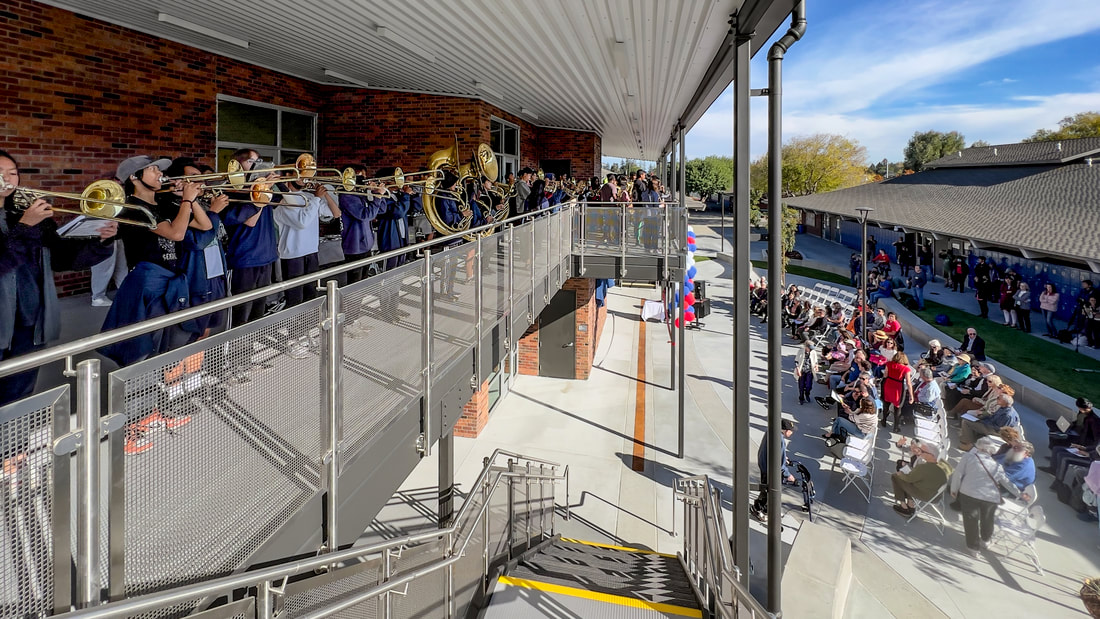
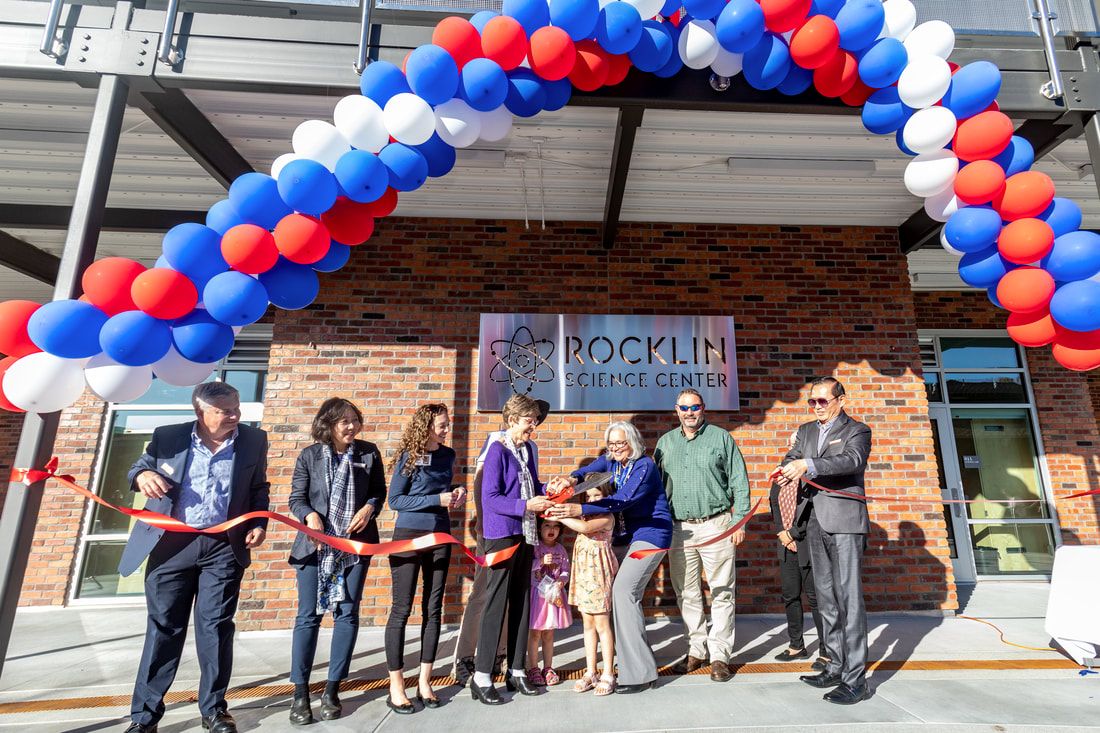
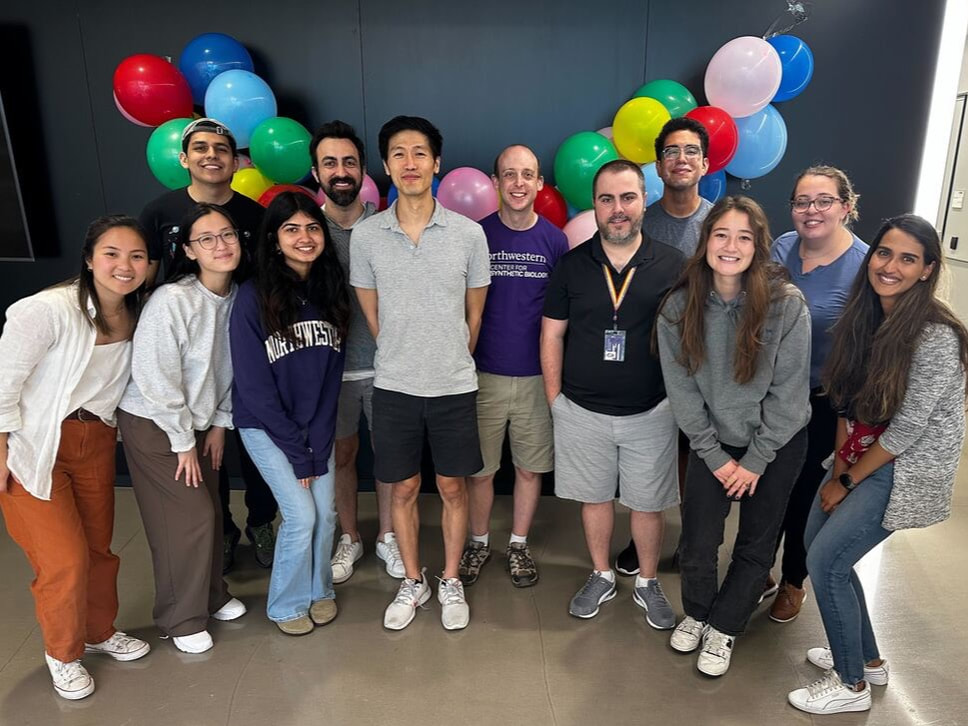
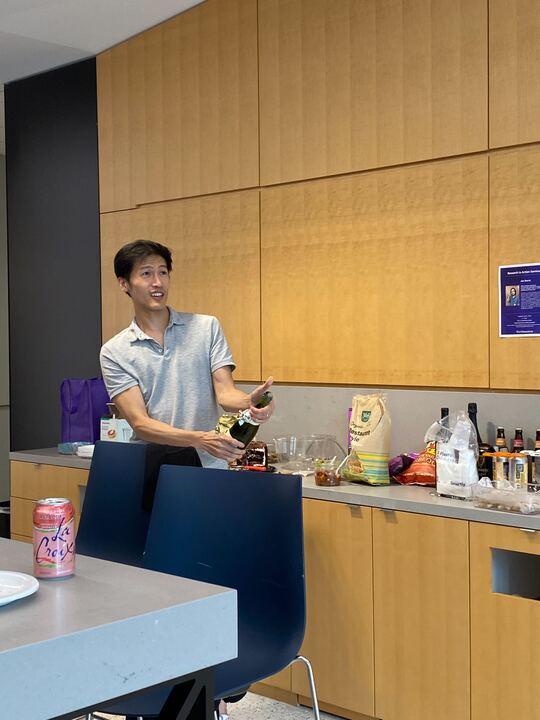

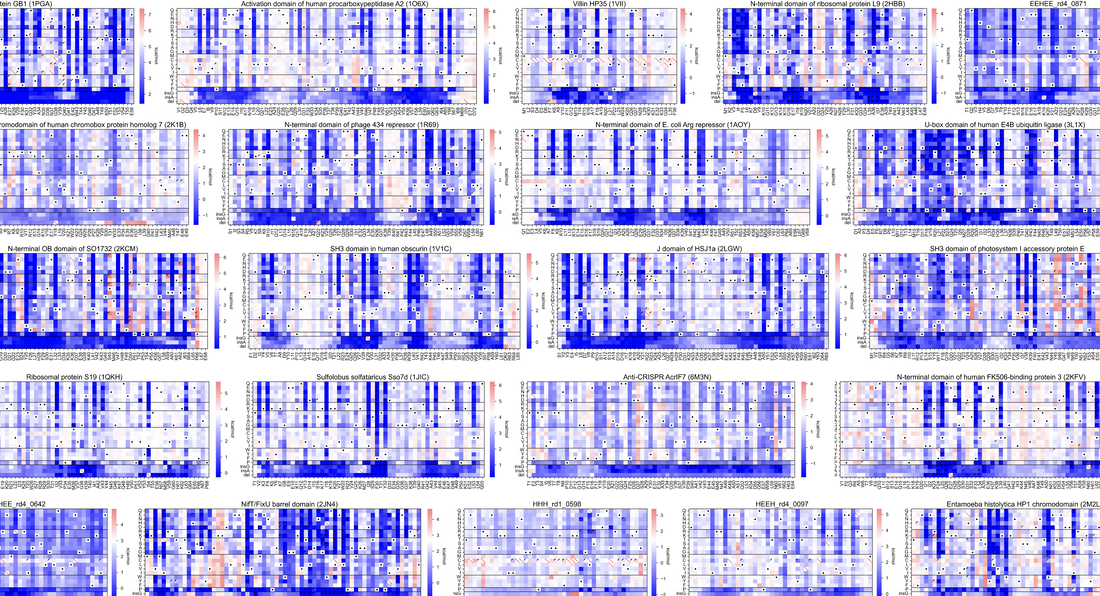
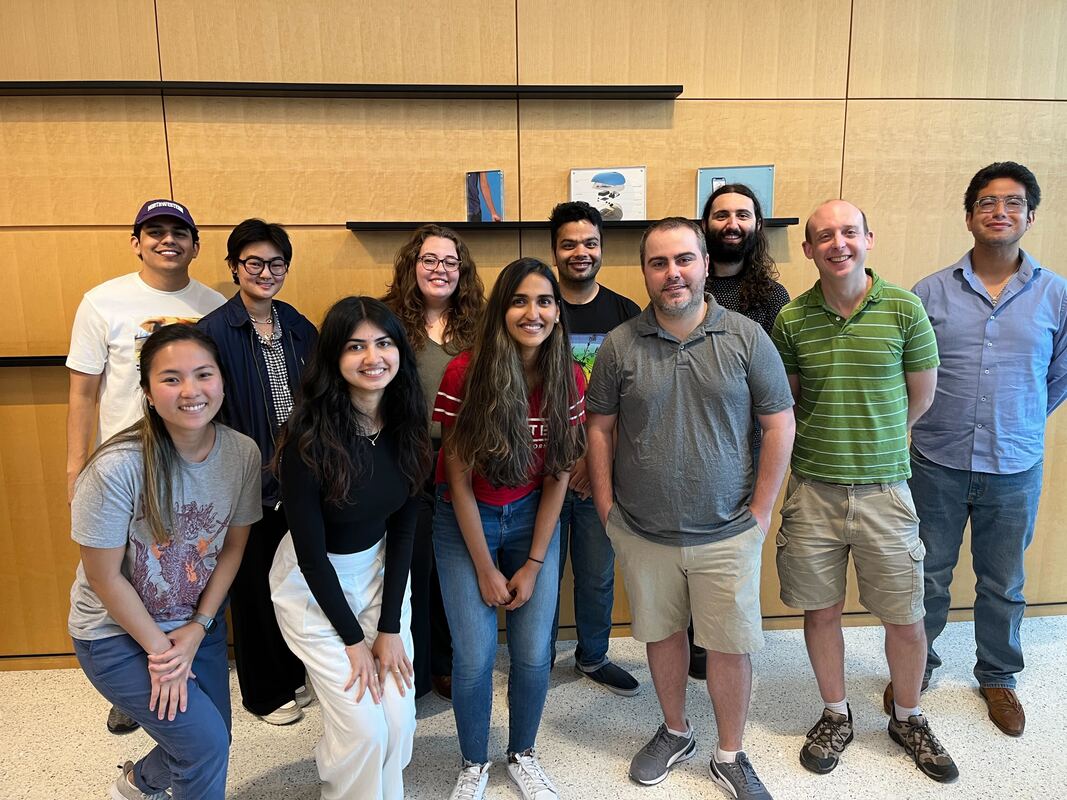
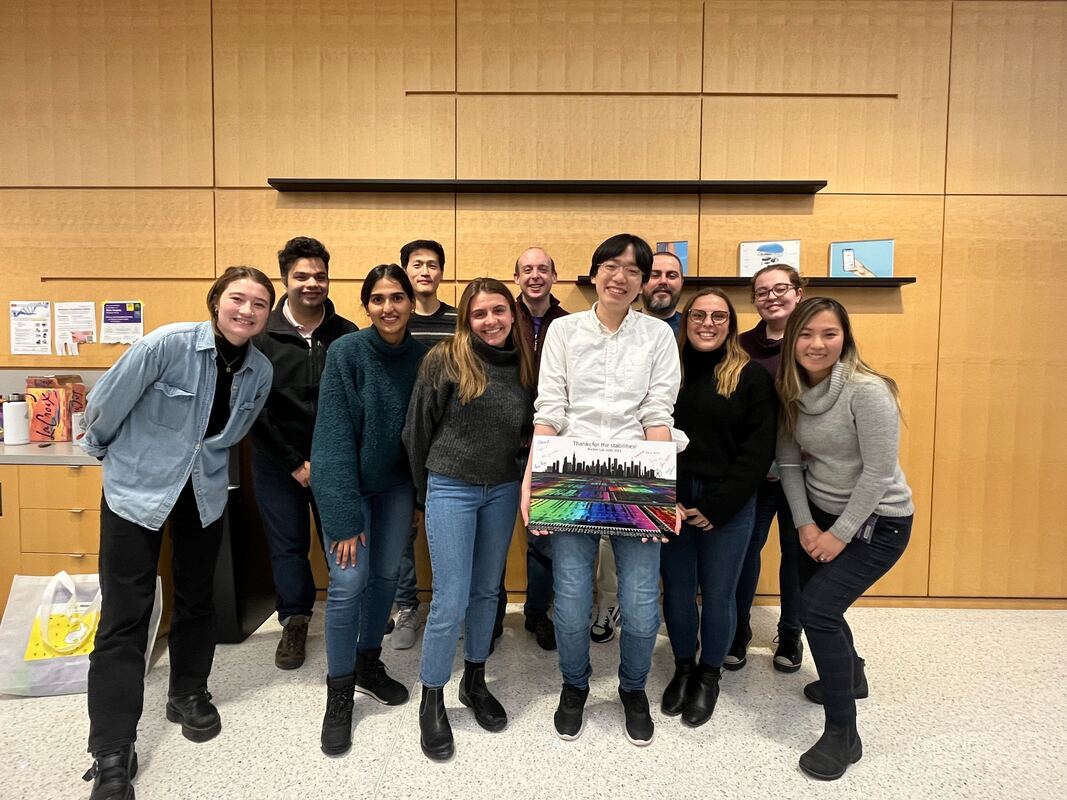
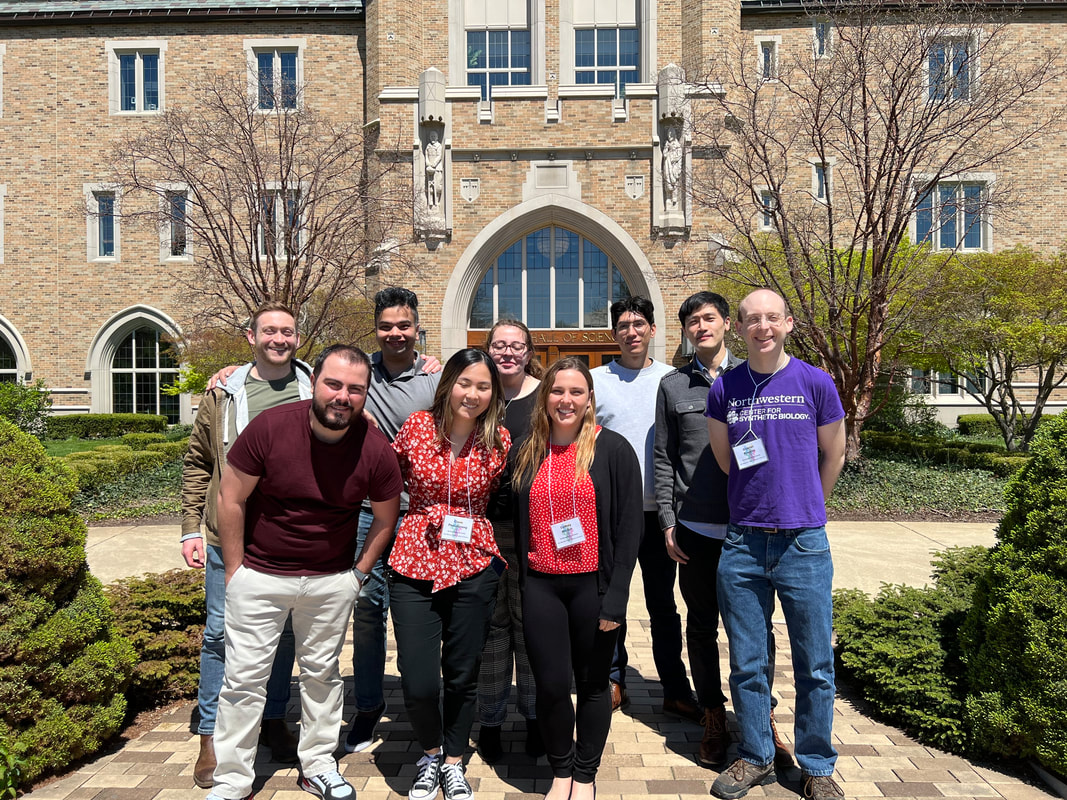
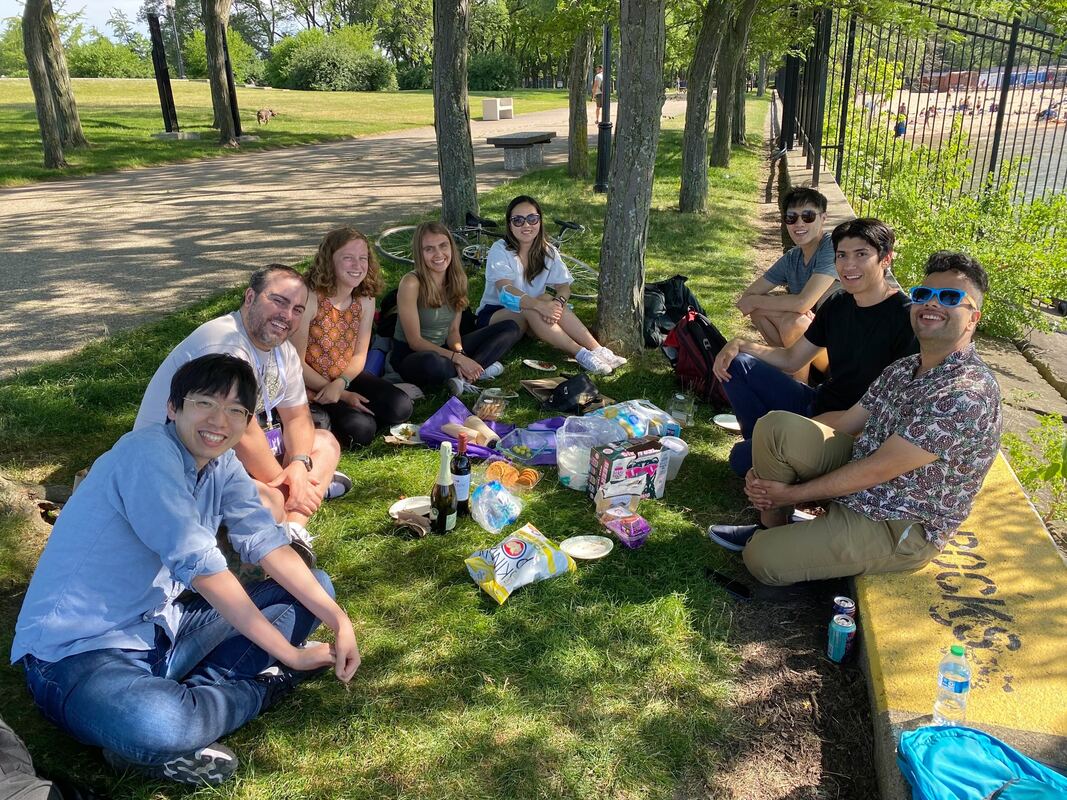
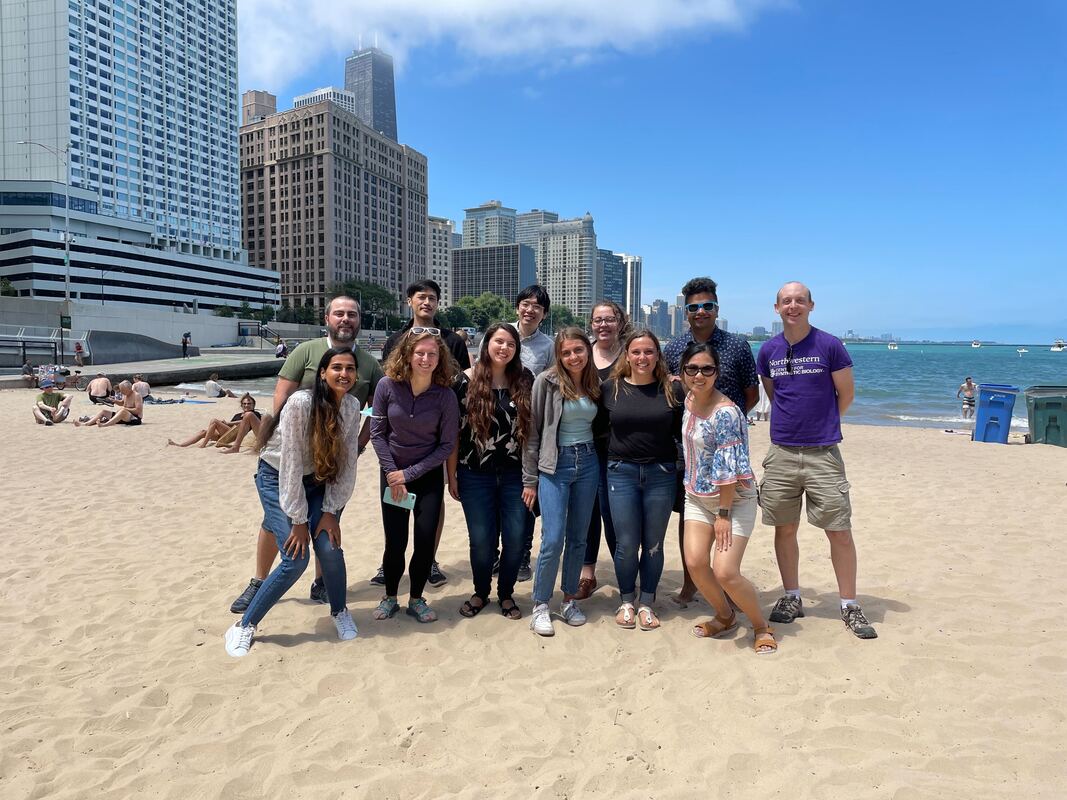
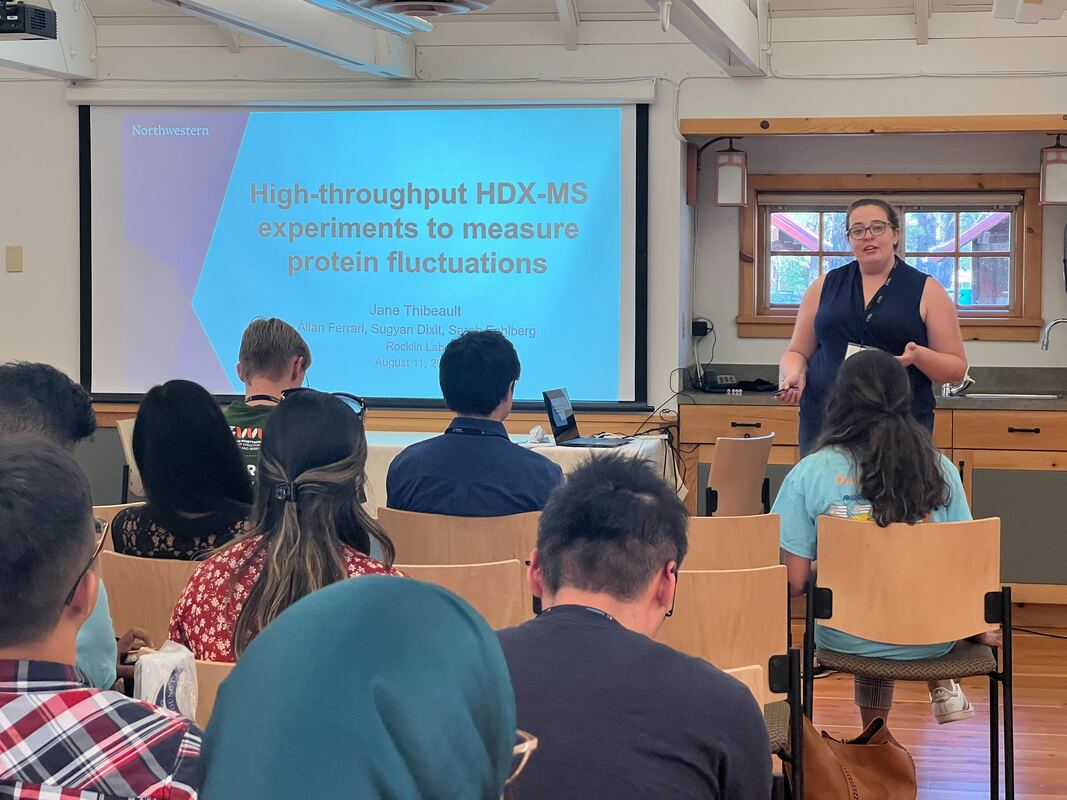
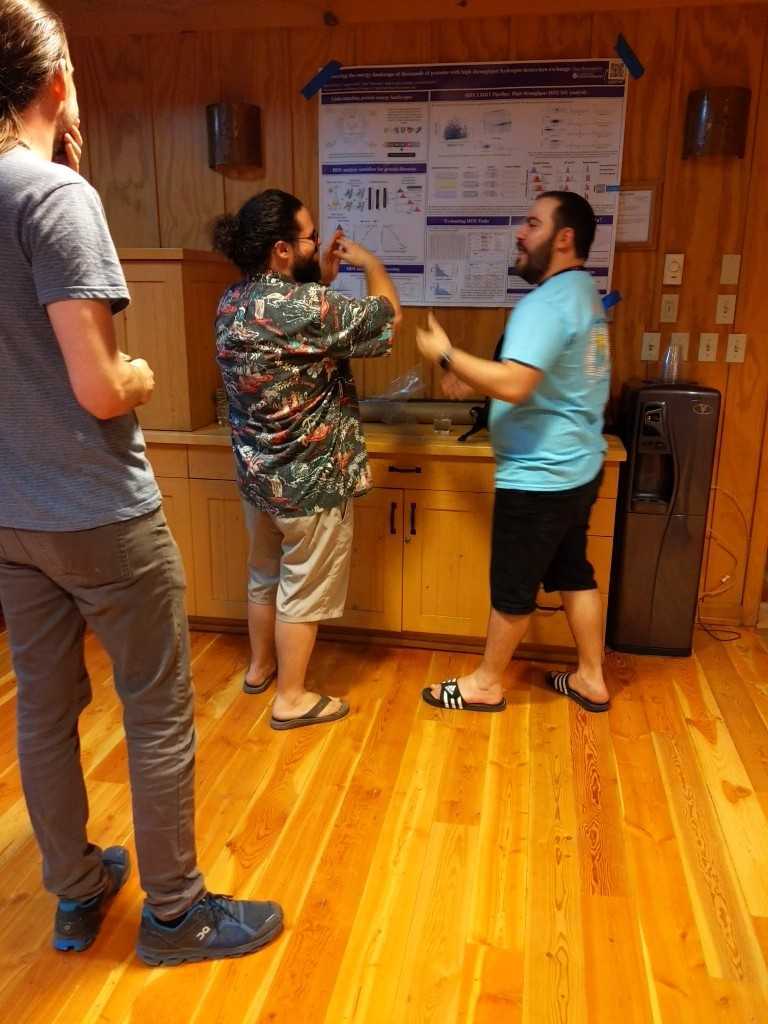
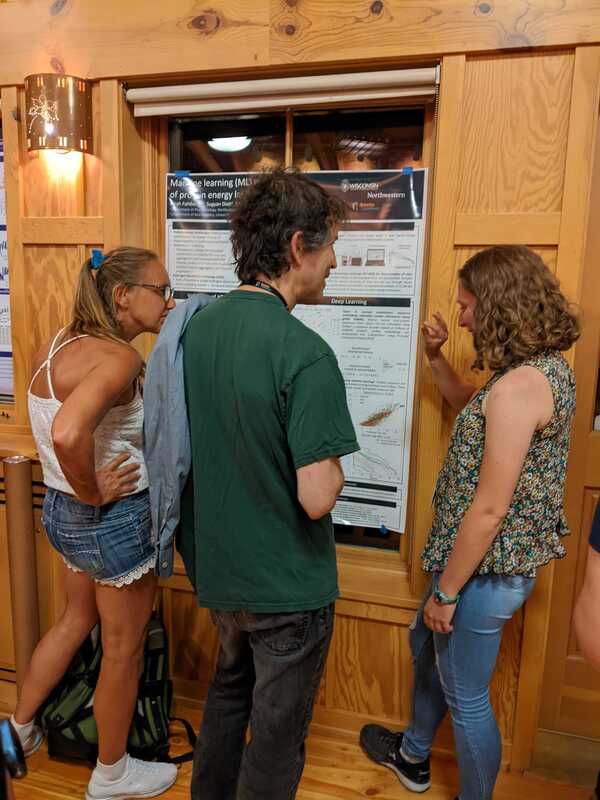
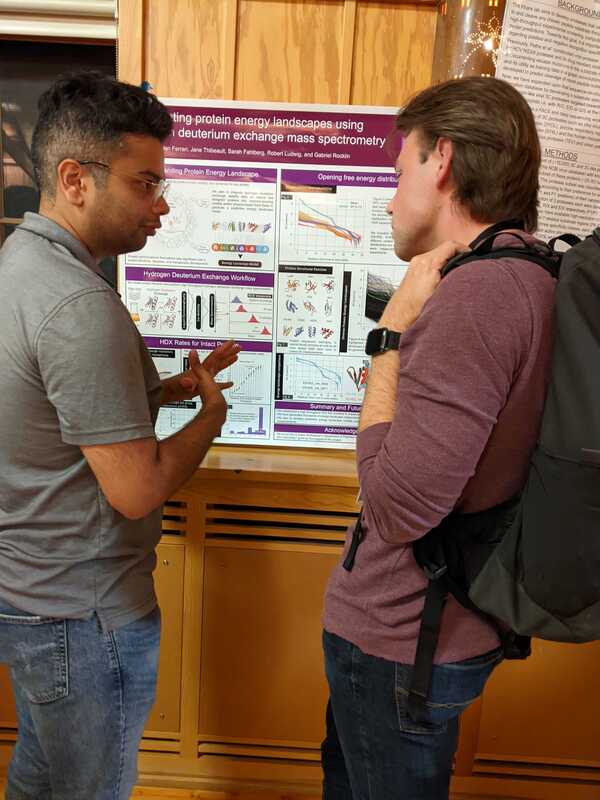
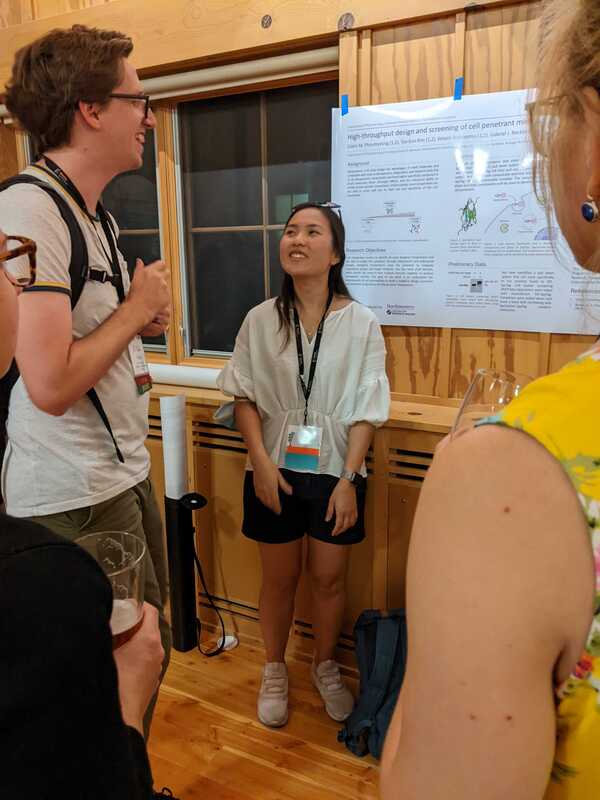
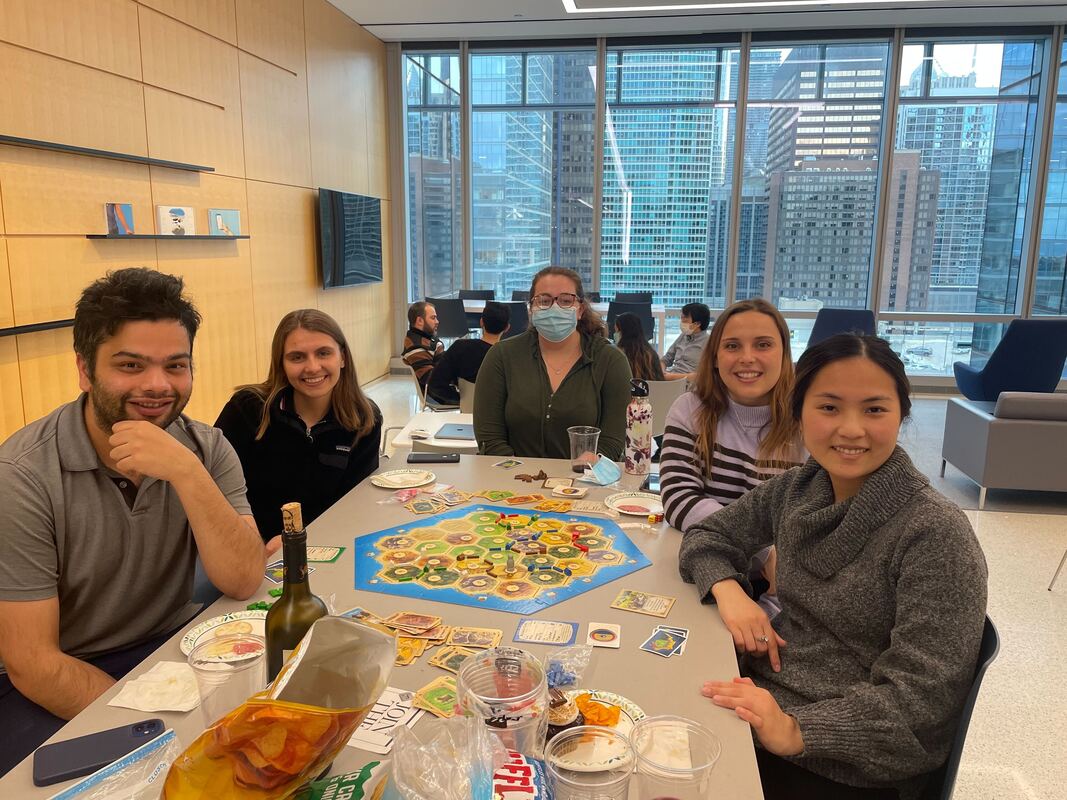
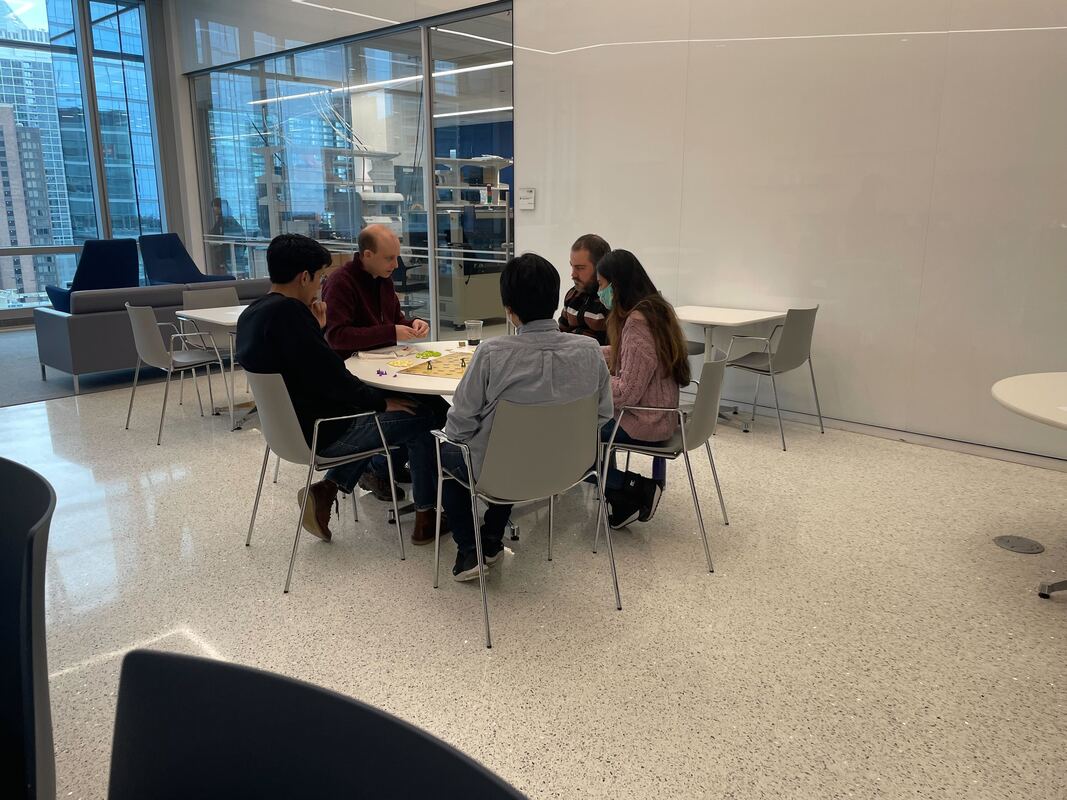
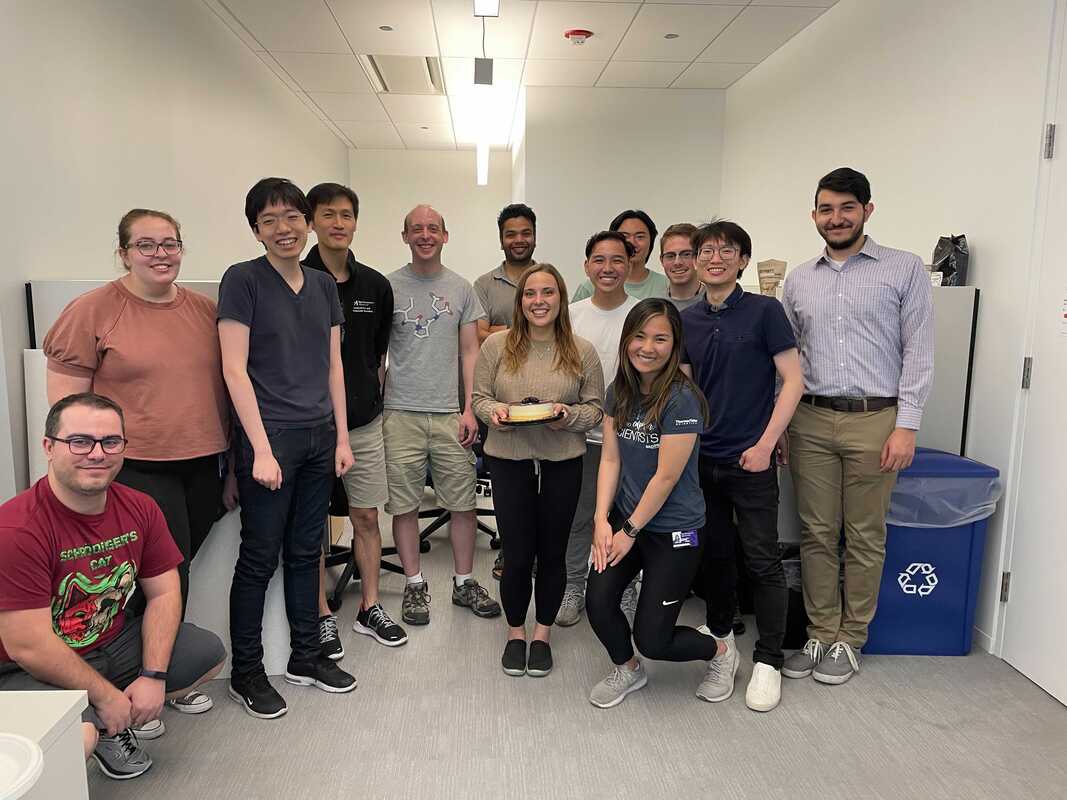
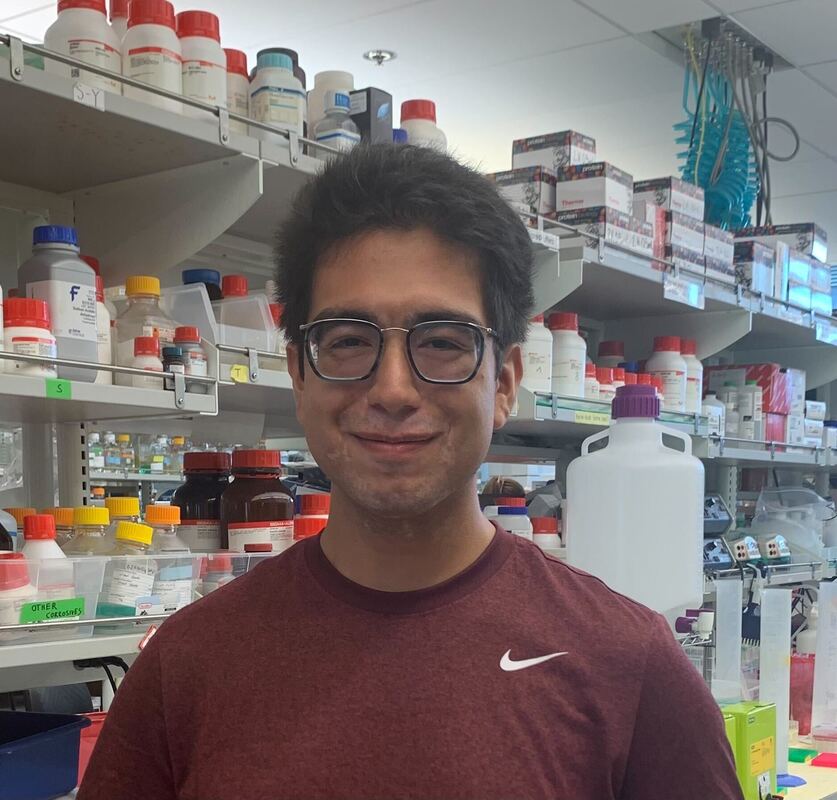
 RSS Feed
RSS Feed